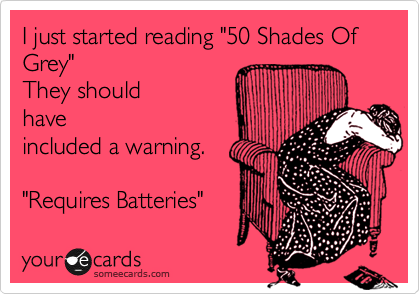By Donna George Storey
It’s a deliciously “dirty” job, but a writer of historical erotic fiction has to do it. As part of my ongoing research for my novel, I’ve been reading the romantic and erotic correspondence of couples whose private letters have been published due to their literary and/or historic value. Sometimes both sides of the correspondence have been preserved, but this is rare. Intimate letters tended to be destroyed by at least one of the partners; more often it is the man’s that survive. If the woman’s do, frequently the racier portions are missing, no doubt for modesty’s sake. Still, many fascinating examples of both lovers’ seductive words remain for our curious modern eyes to enjoy.
Napoleon and Josephine, Thomas Jefferson and Maria Cosgrove, Mabel Loomis Todd and Austin Dickinson, Michael Collins and Kitty Kiernan, Elizabeth Bowen and Charles Ritchie, Maud Hart and Delos Lovelace, my voyeur’s list may grow further still as I continue my research. But I doubt new examples will challenge my main conclusion: Romantic love and sexual passion are timeless human experiences. Of course there are references to split drawers and dressing gowns in these letters, but the words and emotions truly transcend any particular time and place.
Most of all these letters prove that people in olden times–even prominent, “respectable” people–did enjoy sex, as much as the guardians of moral order would like to erase such evidence.
On that note, I must mention one unwitting member of this immortal erotic letter-writing tribe, a man named Godfrey Lowell Cabot, who was mentioned in a number of works I’ve consulted on sexuality in nineteenth-century America including The Humble Little Condom: A History and Devices and Desires: A History of Contraceptives in America. Mr. Cabot was from a very distinguished Boston family and a member of that city’s Watch and Ward, a group of gentlemen who reviewed pornographic images and writings in order to censor them for the good of the community. While protecting the lower orders from lustful thoughts and deeds in his public role, Mr. Cabot himself was the author of a number of intense sexual fantasies written in letters to his wife, Minnie. These letters are certainly the most transgressive (not to say “sickest”) of my sample—“dreams” wherein Mr. Cabot urinated in his wife’s mouth or was swallowed whole by her, his entire body pleasurably lodged inside hers. Of course, he wrote these fantasies in German, so perhaps that made them less obscene by Mr. Cabot’s measure. One does wonder if Minnie, reportedly a social climbing snob who complained of her husband’s incessant sexual demands, bothered to get out the German dictionary or was fluent enough to understand the “dreams” without such an effort.
In any case, there are some who question whether modern readers should intrude on a private, intimate correspondence by an otherwise respected historical figure. Perhaps they worry that the dignity of the personage and of the very value system that elevates great men over the rest of us will be compromised. Mr. Cabot is an excellent argument for openness because it benefits us all to know how hypocritical the guardians of public morals can be.
But most of the time, reading sexy love letters from the past is just plain fun.
My favorite example of historical love and lust comes in the letters James Joyce wrote to his common-law wife Nora while he was away on a long business trip in Dublin. The letters date from December 1909 and only appeared in print in Richard Ellmann’s Selected Letters of James Joyce (1975). Thanks to the Internet, we can read some of the letters in one form or another. I think they’re well worth reading for the boyish, uninhibited pleasure the letters convey. Joyce is not editing himself for public consumption, he is revealing his fantasies and desires to the woman he loves. Many call them “dirty,” but I would characterize them as “sincere.” Occasionally Joyce worries his “fuckbird” will find his fantasies perverted, a nice touch of reality, but although her replies have not survived, it is obvious she was a passionate partner in the exchange and not just doing it to keep him away from Dublin’s brothels.
However, rather like the controversial tampon scene in Fifty Shades of Grey, James Joyce’s “dirty” letters draw disgust for one natural physiological aspect in particular–his obvious joy in his partner’s farts during intercourse.
“You had an arse full of farts that night, darling, and I fucked them out of you, big fat fellows, long windy ones, quick little merry cracks and a lot of tiny little naughty farties ending in a long gush from your hole. It is wonderful to fuck a farting woman when every fuck drives one out of her.” (Excerpted from December 8, 1909)
A goodly number of online commentators are really grossed out by this (they are less vocal about Joyce’s delight in the image of Nora masturbating while she defecates, but perhaps that one was too much to tackle in a public forum). Surely anyone who’s read Ulysses–and haven’t we all?–could have guessed that Joyce is a butt guy:
“He kissed the plump mellow yellow smellow melons of her rump, on each plump melonous hemisphere, in their mellow yellow furrow, with obscure prolonged provocative melonsmellonous osculation.” (“Ithaca” chapter, Ulysses)
And dare I suggest that anyone who has experienced heterosexual intercourse knows that the insertion of a rigid penis into the woman’s pelvic region results in the passing of gas on occasion? Joyce’s celebration of his lover’s farts during intimacy could be seen as endearing, an unconditional acceptance of her body and all of its qualities in the throes of passion.
In American Taboo: The Forbidden Words, Unspoken Rules, and Secret Morality of Popular Culture, Lauren Rosewarne contends that farts and fart jokes are allowable in low humor genres and as a way to portray male characters as unrefined and undisciplined. However farts invariably decrease the sexual attractiveness of women. Desirable women simply never fart, although they are supposed to endure with patience the farts of their male partners. Above all, one is never supposed to couple a towering god of twentieth-century literature such as James Joyce with something as crude as farting.
Now, if you find farts during sex disgusting and unspeakable, that’s fine. One should be no more judged for that reaction than the opposite preference. But I’d also suggest that this glimpse into other couples’ intimate lives does give us a chance to acknowledge how sex and the taboo are closely linked. Rather than recoiling in disgust, why not wonder at the variety of humanity’s sweet perversity? And be grateful to these lovers whose words show us we are all connected through time in our erotic desires?
Write on!
Donna George Storey is the author
of Amorous Woman and a collection of short
stories, Mammoth
Presents the Best of Donna George Storey. Learn more about her
work at www.DonnaGeorgeStorey.com
or http://www.facebook.com/DGSauthor







